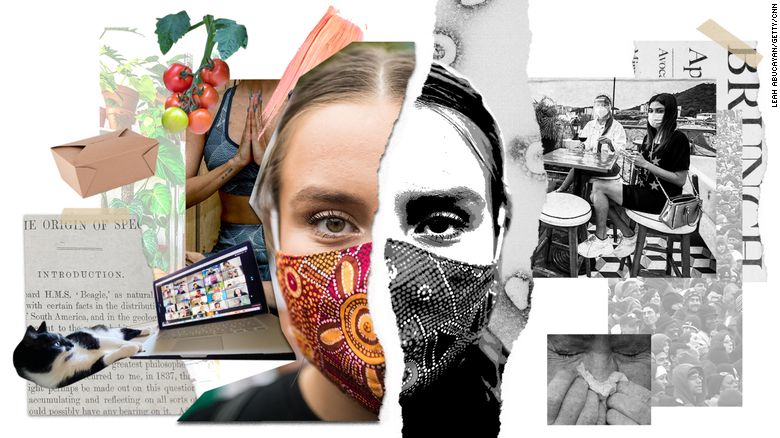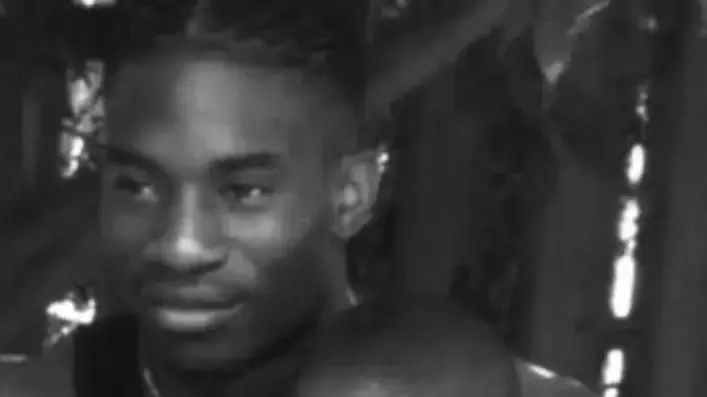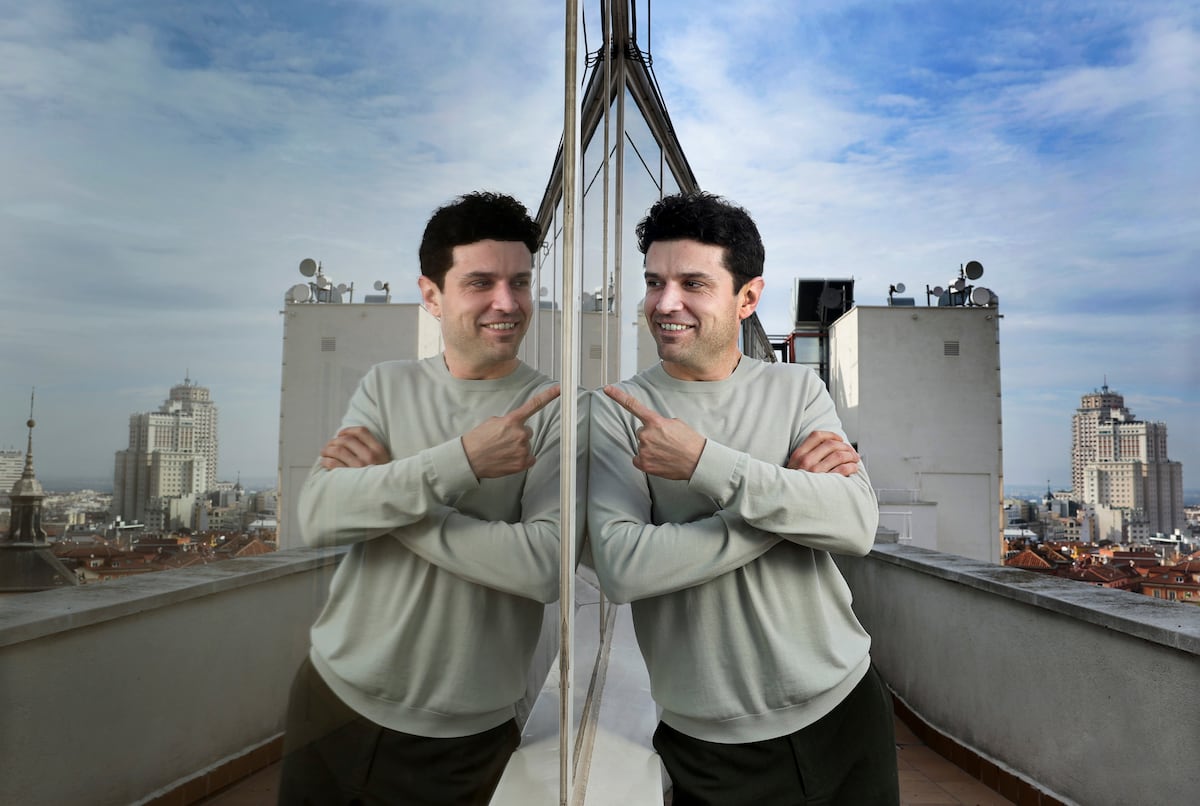Biden: "Normal could come by Christmas" 0:51
(CNN) -
When indoor restaurant areas reopened in my city, I saw three women in their twenties yelling and gossiping over Zinfandel wine at a local business.
I was there briefly with my N95 mask to pick up my takeout.
At that moment it occurred to me that, as much as I missed dining in restaurants, I did not miss that.
He didn't want to be at the table with noisy people, even when his sprays no longer contained a deadly contagion.
There is a possibility to restart
To be clear, I want the pandemic to end, but there are so many things I don't want to go back to.
Co-workers sneezing in open work spaces, for example.
Crowded shopping malls on the weekend.
Mandatory birthday
brunch
.
Or cocktail hours of any kind in which we have to socialize and chat with strangers.
One of the positives of forced physical distancing has been the opportunity to reboot - keeping those we hold dear close and gladly giving up on having to make excuses to everyone else.
LEE: A "significant return to normalcy" will be possible when the most vulnerable to covid-19 are vaccinated, says expert
"I never want to go back to what normality used to be," said Tori Neville, a communications professional who has been working from her home in the Hudson Valley, New York, since the pandemic began last year.
“I love working from home and not having to do things just to show my face.
My life is so calm, my anxiety has decreased.
I am more connected to my family and myself.
My focus is clearer than ever.
Who will return to crowded spaces?
More than 50% of employees do not want to return to office life, according to a recent Pew study.
But while it may be easy not to miss rush hour commuting and icy conference rooms, many have also developed an aversion to social pastimes they once enjoyed and now can't imagine going back to.
READ: 9 things that weren't scary before the pandemic but maybe now
Andy Humm, an LGBTQ activist and media creator who has written theatrical reviews for over 30 years, can't imagine going back to crowded spaces like before.
"If we ever go back, even if this pandemic is completely over, I hope that wearing masks in authentic theaters and cinemas will become the rule," he said.
Have any of us who once considered ourselves social butterflies become wallflowers during a year's stay at home?
Are we perhaps more insightful about how we might plan social outings after a year of rethinking how social encounters could harm us?
We know more than ever that our time on this planet is limited, and it's just not worth meeting that old friend from college who we never liked that much anyway.
Or our reward-risk ratio no longer values a meal with noisy people at the next table.
Some people are more anxious
Some of us are more socially anxious than we were.
After all, many of us had more than a year of training to undo the social impulses that we have built up throughout our lives: hug that old friend, help that old man cross the street, chat with that colleague after the meeting. .
READ: Why a vaccine against covid-19 does not mean that you can stop using a mask
However, more than a year avoiding social interactions, with masks that make those encounters we have more uncomfortable, has turned some of us into clumsy idiots who are more comfortable planting tomatoes in our pandemic gardens than receiving the breeze. with an acquaintance at a co-worker's retirement dinner.
Perhaps we have always felt this aversion to social obligations and want to hold on to a hermit life after a pandemic.
"Since our social calendar has been limited for the past year, filling it can be challenging for some and causing anxiety for others," said Judith Zackson, clinical director of the Zackson Psychology Group in Greenwich, Connecticut.
Some people will rush to meet
Younger people will feel more desperate to reconnect physically, according to Zackson, and will rush back to the pomp and circumstance of daily routines and social commitments, something she calls a "setback from confinement."
Older people, however, may take longer to return to the scene to minimize their risk.
The pattern can follow for introverts and extroverts, respectively, with some relying on their comfort level to stay and others running with open arms into the crowd.
LEE: Nobody buys pants anymore, but the sale of pajamas has skyrocketed
The pandemic may also have brought out previously undiscovered parts of ourselves, the inner introvert in the previously extroverted social butterfly, and vice versa.
"Some of my patients who struggled with social anxiety began to flex their communication muscles during covid-19," Zackson said.
“Being in your own space increased trust, openness and reflective thinking with different people with different points of view.
"This experience gave them a new perspective, challenged their negative beliefs and made it easier to return to normal activities in person while continuing online interactions," he added.
Isolation can also lead to social dysfunction
However, physical isolation can also lead to social dysfunction, as multiple studies have shown, including a 2019 study in The New England Journal of Medicine.
The researchers studied the effects of expedition members with extreme social isolation in Antarctica and determined that "exposure to environmental monotony and physical isolation have deleterious effects on the brain."
However, it could be argued that a new orientation around seeking satisfaction informed by one year of pandemic-induced physical distancing is not entirely negative.
These 3 tips will improve your relationship 1:33
If you were a night owl before covid-19, crowded into crowded bars, and now your pursuit of pleasure comes in the form of reading a good book just curled up on the couch with a hot cup of tea or a cold glass of Chardonnay, it is not all bad.
If you come out of the pandemic with more discernment about how you spend your precious time and with whom, it is only yours and only you are the one who can decide.
And if wallflower or hermit aren't nicknames you're ready to use for the long haul, just be prepared to put on your hat of patience the next time your co-worker doesn't stop talking about last night's game near the water dispenser. .
Allison Hope is a writer and native of New York who prefers humor to sadness, trips to television and coffee to sleep.
coronavirusCovid-19







